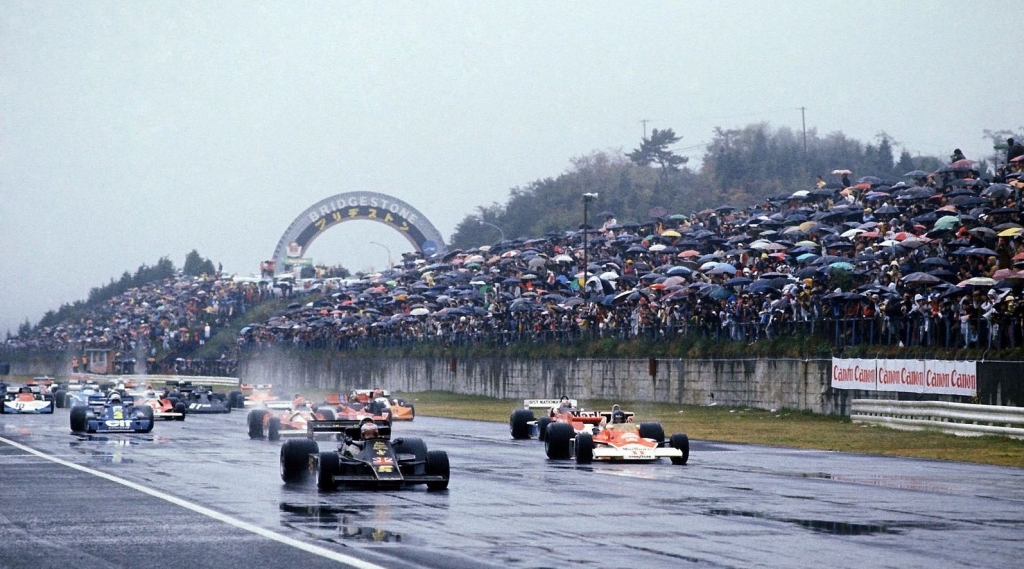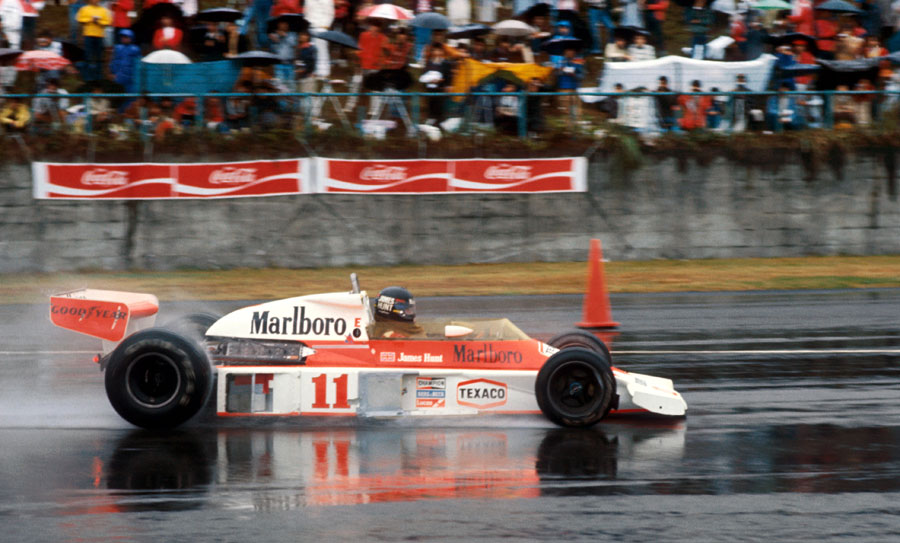
On October 24, 1976. Fuji International Speedway hosts the inaugural Japanese Grand Prix. It would become one of the most famous title deciders in the history of motorsport. Károly Méhes reports.
The 1976 Formula 1 World Championship had seen it all. A horror accident for Niki Lauda in Germany, a late season charge by James Hunt. It all came down to the last race of the season. One for the history books.
Lauda, who had been read the last rites after his fiery crash at the Nürburgring, missed only two races but was not back to his best yet. He was a magnificent fourth on return at Monza, but failed to score in Canada and could do no better than third at Watkins Glen. In comparison, Hunt looked unstoppable. With three wins out of the last four races, he was only three points behind the Austrian coming to the final round in Japan.

Ahead of the race, Niki was in a reflective mood. Sure, he wanted to win the title. But he was also happy to be alive. Hunt, on the other hand, wanted to win by all means. “I’m really sorry for Niki, but this is probably the best chance I’ll ever have to win the Championship.”
Come race day, it was raining dogs and cats at Fuji. Only Jacky Ickx wanted to race. Debates raged up and down the pit lane as the start was postponed over and over again. Bernie Ecclestone, already conducting the F1 orchestra, convinced the drivers to don their helmets and prepare for the start.
When I spoke with Daniele Audetto, Ferrari’s sporting director in 1976, he put it simply. “The rain was terrible. Bernie convinced the drivers to make the start so they wouldn’t lose the TV and advertising money. He said everyone could stop after a few laps and that the fans would accept this given the terrible weather. Niki agreed and pulled into the pits with Fittipaldi and Pace soon after the start. The others continued, of course. Hunt led the race and had no intention of ending his fight for the title in this way.”
Was Enzo Ferrari angry with his champion driver? “I don’t think so. Niki’s decision was a very human one. Nobody could judge how bad the conditions were except the driver. He was also still suffering physically from his accident a few months earlier. But it still hurts to this day that Niki took the agreement seriously [to stop after a few laps]. Practically, he was misled. I remember after he pulled into the pits he watched the field cruise around for two or three laps, waiting for everyone to stop. After a while, he had to accept they weren’t going to stop after all. It was quite a shock for him, especially Hunt’s behaviour. He packed his stuff and left.”
Mario Andretti started from pole for Lotus, but Hunt took the lead at the start and forged ahead with a clear track in front of him. When Lauda brought his Ferrari into the pits, Audetto and chief engineer Mauro Forghieri offered to tell Enzo Ferrari that he had an engine problem. But Lauda stack to his decision. “There are more important things in life than the world championship!”
Hunt led commandingly, but after half distance the rain stopped and the track began to dry. The wet tyres began to struggle and Patrick Depailler pitted for fresh rubber. Hunt experienced the same issues with his tyres, but also knew that with Lauda out, he only needed to finish fourth to become World Champion. He hesitated to come in for a tyre change.
Andretti took the lead before Hunt finally stopped for fresh tyres on Lap 62. He stormed back on to the track, but was down in fifth. Not good enough to win the Championship. Hunt famously passed Regazzoni and Jones for third, enough to win the 1976 World Championship by a solitary point.
Post-race, Lauda’s actions were labelled everything from “heroic” to “cowardly” in the Italian press, but the tenacious Austrian didn’t care. He gave his answer the following year in the best possible fashion, by winning the 1977 title for Ferrari. Decades later, the titanic battle between Hunt and Lauda was turned into a hit movie by Ron Howard called ‘Rush.’